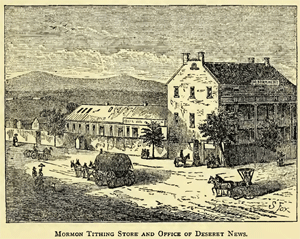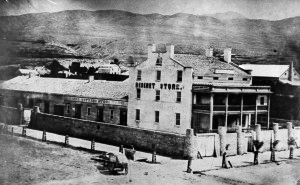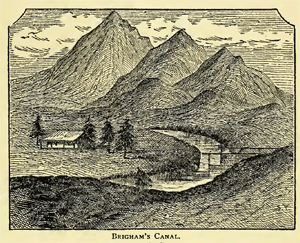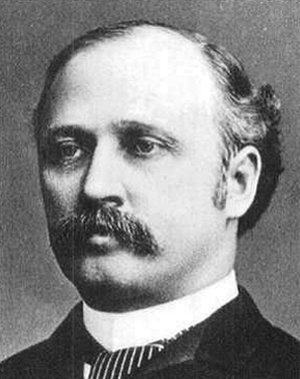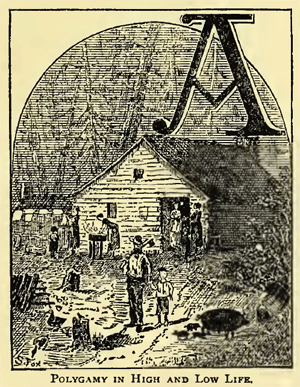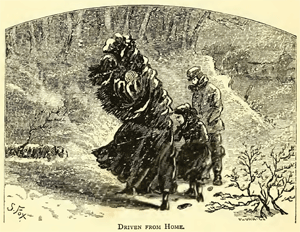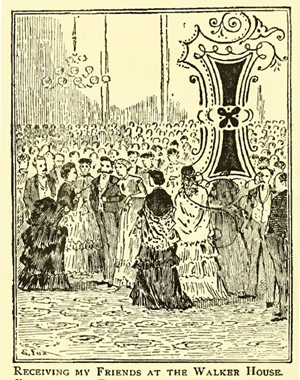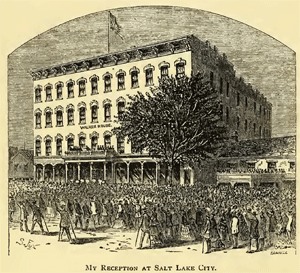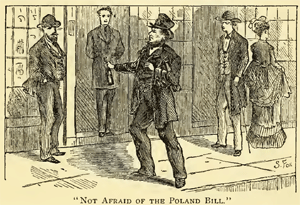One Year after Marriage. Life at the Farm. House-keeping Extraordinary. Bread and Milk Dinners. Brigham Tries to Catch us Napping. Hours of Labor. Dejection. My New House. Parlor Stairs. "Wells Wanted." My Mother receives Notice to Quit. My Elder Brother Pays her Board. Failing Faith. Taking Boarders. The Prophet's Contemptible Meanness. Brigham's Neglect. Rev. Mr. Stratton. I open my Heart. The New Religion. Woman's Sphere. First Glimpses of the Outer World. Forming Resolutions.
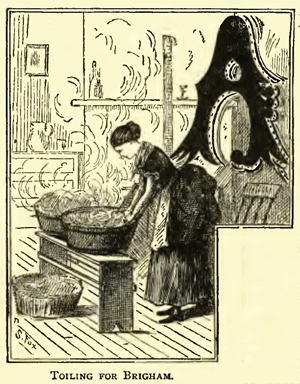
Toiling for Brigham.
AFTER we had been married a year, Brigham decided that I should go to "The Farm" to live. He has several farms among his landed possessions, but this one, which supplies the Salt Lake City family with milk, butter, cheese, and vegetables, is always spoken of as "The Farm." It is about four miles from the city, within pleasant driving distance, but is by no means a desirable place of residence.
Every one of the wives who had been compelled to live there had become confirmed invalids before they left the place, broken down by overwork; and the prospect was not a pleasant one to me, never strong, and unused to hard, continuous labor, such as I knew I should be obliged to perform as mistress of the farm-house. But, as it was my husband's will, I went, without a word of protest. I had one bit of comfort -- my mother was to accompany me.
Outwardly, my new home had a lovely appearance, and Brigham never tired of descanting on its beauties to any one who would listen to him. These expressions of admiration would have been reasonable enough, had not the eulogistic owner insisted on its comfort and convenience, as well as on its beauty; but he was just as earnest in recommending it for those virtues which it did not possess, as he was in lauding it for its pleasant exterior. And, indeed, with its somewhat irregular architecture, its wide verandas, vine-draped and shaded, its broad, low windows, and beautiful surroundings, it is one of the pleasantest looking places that one would care to see.
It is built after one of the Prophet's own plans, and he says that it cost twenty-five thousand dollars. Possibly it did; but I am certain that, with the same amount of money, I could build a house that should vastly exceed that in external beauty and interior appointments.
The walls are very thin, and the sun and heat penetrated in summer, and the cold in the winter, making it at once the warmest and the coldest house I ever saw. That might have been a recommendation, had the temperature been regulated to suit the seasons; but, unfortunately for our comfort, it was hot when we wished it cool, and vice versa. My mother hazarded an opinion to this effect in Brigham's hearing, and he was greatly scandalized by it. He informed her that she had been so long away from civilization that she was not a proper judge of what a house ought to be! They both left "civilization" at the same time.
Housekeepers will understand something of its inconvenience, when I tell them that the stairs leading to the second story went directly from the parlor; that all the sleeping rooms were up stairs, and that, in order to reach them, we had to pass through a dining-room thirty feet, and a parlor forty feet in length; that hired men, family, and visitors were all compelled to use the same staircase. If any member of the family was ill, everything needed for the invalid had to be carried from the kitchen to the sick room, rendering the care of the invalid tiresome in the extreme.
The duties of housekeeper at "the Farm" were neither slight nor easily performed. There were butter and cheese to make from forty cows, all the other dairy work to attend to, besides cooking for twenty-five or thirty men, including the farm laborers and the workmen from the cocoonery. I know at least six women who have been completely broken down under the work at the farm-house, and neither my mother nor myself have ever recovered from the illness contracted there from overwork. My mother made the butter and cheese, and took charge of the cooking. I assisted in the latter, took care of the house, did the washing and ironing, and was allowed the extreme pleasure of carrying the farm supplies to the other wives every week.
We had occasional visits from Brigham. He was very fond of coming unexpectedly, and at all sorts of irregular hours, hoping, evidently, that some time he might catch us napping. He was so addicted to fault-finding, and so easily displeased, that we took no pleasure in his visits, and I grew to be positively unhappy every time his approach was heralded. If his coming had brought any comfort, I should have looked eagerly forward to his visits; as it was, I dreaded them, and grew ill with nervousness and apprehension every time he came to us.
I remember one day, when he visited us, he came about noon, just as mother had placed dinner for the workmen upon the table. He walked up and down the dining-room, surveying every dish with a critical eye, until we began to fear that something must be terribly amiss. He professed to be such a connoisseur in all matters relating to the cuisine, and was so frank, to say the least, in the expression of his opinions, and so careless of the terms which he employed, that we dreaded the remarks which were almost certain to follow this critical scrutiny.
After the men were seated at the table, Brigham called my mother into the adjoining room. "You cook too good food for those men," he said; "it is too rich for their stomachs."
"I wish to give them something which they can eat, and I try to do so," replied she. "They work hard, and I surely can do no less than give them palatable food; yet if you do not approve of my manner of providing for them, I will make any change you may suggest, if I can satisfy the men with the fare."
"It don't make any difference whether they are satisfied or not," was the answer. "I say it is healthier for them to have bread and milk, and you must give it to them."
"Shall I give them this, and nothing else, three times a day?" inquired she.
"Well, once in a while you may set on a little butter, too," was the generous reply.
"But are they to have no meat?"
"Perhaps I will allow them a little occasionally, but they are much better off without it."
This is a specimen of the interference to which we were constantly subjected.
At another time, he told my mother that six o'clock was too early an hour to give the men their supper in summer. It was a waste of time, he said; they ought to work in the fields two or three hours longer, at the least. My mother reminded him that after supper there were the forty cows and other stock to be cared for. He said that could as well be done after dark as before; there was no danger of the men hurting themselves with work; nobody ever did, that was in his employ. They all were leagued together, men and women alike, to swindle him, and his wives were as bad as the rest.
My mother told the overseer what Brigham had said, and he replied that, even for the Prophet, he should not ask the men to do another hour's work a day; they were overworked already, and they should leave off work at six o'clock each day, as they always had done. That ended the matter, and the tea hour was unchanged.
I lived here for three years and a half, -- long, uneventful years, -- and how I hated my life! It was dull, joyless, oppressed, and I looked longingly back to the dear old days at Cottonwood, the restful days that never could come again. Even the love I bore my children was changed. It was no less tender, no less deep, but it was less hopeful and more apathetic. I clung to them in a kind of despair, and I dreaded the days, which must inevitably come, when my clinging arms could no longer infold them, when my love alone would cease to satisfy.
I could not tell my feelings to my mother, for, although she was as sensitive to Brigham's captious fault-finding as I was, habit was very strong upon her, and she could never separate him from her religion.
At the end of the three years and a half, he told me one day that he was building a house for me in town, which he intended to have me remove to as soon as possible. It was out of no feeling of regard for me, or care for my comfort, which influenced him; he simply wished to put some one else in the farm-house, and it was necessary that I should move, to make room for the new comer. I knew all this perfectly well, yet I was so happy at the thought of getting out of all the drudgery of the past years, that I was perfectly indifferent to the motives which induced him to make the change for me.
When he told me of the house, I said I had one request to make of him, which I hoped he would grant.
"What is it?" inquired he.
"Are there to be chambers in my new house?"
"Yes, certainly."
"Then will you please not to build the stairs from the parlor. Let them go out of any other room in the house, but do not disfigure that one. Besides being ugly," I continued," it is inconvenient, and excessively annoying to be obliged to pass through the best room at all times, and on every occasion."
"You can have stairs out of every room in the house, if you want them," was the reply.
I was quite satisfied, for I thought that equivalent to a promise that my parlor should be left as I wished it. He told me that he was spending five thousand dollars on my new house, and, from his description, I fancied it must be a very charming place.
Visitors to Salt Lake City are always taken to see "Ann Eliza's house," and much is made of the fact that it was built expressly for my use; but the following equally important facts are carefully concealed: --
Taking a view of it from the street, it was an exceedingly pretty cottage, with an air of cosiness about it, which frequently called out remarks from passers by, who thought "Sister Ann Eliza very fortunate in her home." Inside it was very inconvenient, and badly arranged, being built after the stereotyped prophetic plan. The rooms were very small, the kitchen being scarcely large enough for a doll's house, measuring ten feet one way, by six feet the other. And yet in this room all the washing, ironing, and cooking for the family were to be done. Then, to my bitter disappointment, the only stairs in the house ascended from the parlor! That, too, in the face of my expressed wish.
There were no facilities for obtaining water, and we were compelled to depend upon our neighbors' wells. Naturally enough, this annoyed them, and they used frequently to say that Brigham Young was abundantly able to provide a well, and they did not care to furnish water for his family, or any portion of it. Speaking to him concerning these matters was worse than useless, for I never could influence him in the slightest, while every suggestion which I ventured to make irritated him extremely; so I held my peace, after one or two attempts to change things a little, so that the house should be more convenient.
I had scarcely got settled in my new home, when he told me that my mother must leave me; he could not afford to support her any longer. This, too, when she had worked herself ill in his service, and had asked no reward for her labors except the privilege of staying with me, her only daughter; the child from whom she had never been separated for any great length of time.
I cried bitterly after my husband had left me, but I would not tell my mother what he had said. I knew she would be sorely grieved, and that she would go away at once. Her independent spirit would not permit her to remain a pensioner on this selfish man's unwilling bounty.
I could not live without her. I leaned on her in piteous dependence, and looked to her for all the comfort I had outside of my children. In addition to the dread and dislike which had grown up in my heart toward my husband, I was beginning to lose faith in the religion which he represented. His petty meannesses, his deceit, his unscrupulousness, his open disregard for the truth, all were so utterly at variance with the right, that I could no longer look upon him as a spiritual guide and director.
I looked about me, and on every side I saw so much of misery, that I felt it must be a false faith indeed, which brought such unhappiness to its followers. Yet I knew no other religion, and I groped about in a state of spiritual bewilderment, tortured by many conflicting doubts.
I did not dream, then, of trying to get out of it; my only thought was how to live with the least misery, and my best comfort was to keep my mother.
Finding that I did not tell her, after repeated orders from him to do so, he threatened to send her away himself. In great distress of mind, I went to my elder brother, who offered to pay me five dollars a week for my mother's board, and on those terms Brigham expressed his willingness that she should remain with me.
I now began to find it difficult to make him provide even the commonest necessaries of life for me, and I plainly saw that I must take things into my own hands, and earn my own support, and that of my children. I asked permission of my husband to take boarders, and he granted my request with amazing readiness; so I went to work in good earnest, and soon succeeded in filling my house. As it chanced, all my boarders were Gentiles. Brigham knew this perfectly well, yet he did not seem in the least concerned about it. Indeed, of so little importance was I, or my actions, that he never troubled himself to come near me after he had given his consent that I should support myself in the way I considered the easiest. The last time that he ever visited me was months before I left my home.
Previous to the time of receiving these new inmates into my family, I had one acquaintance outside the Mormon Church. This was Mr. Howard Sawyer, a Gentile gentleman, to whom I was introduced while visiting at Mrs. Rachel Grant's. Some time after I had commenced my work of self-support, I met him again at the house of Mr. Nathaniel V. Felt, a Mormon. The Rev. Mr. Stratton, pastor of the Methodist church in Salt Lake, was with him, and he introduced us at once. He had previously told Mr. Stratton that I spoke very freely on the subject of Mormonism, and that he need not hesitate to question me, as he would find me very frank and honest in the expression of my opinions.
Mr. Stratton was the first representative of a religion outside the Mormon belief whom I had ever met, and I listened anxiously to every word he said, hoping to find some ray of light and cheer. As he talked, I felt very strongly drawn toward the world which he and Mr. Sawyer represented, and I longed to know more concerning it. I was much impressed by this interview; and at its close, Mr. Stratton expressed a wish to see me again, and to have his wife meet me. I was struck by his very manner of speaking of her. I had never heard a woman referred to in so deferential a tone before, and I wondered at it.
As the days went by, I grew more miserable, and longed inexpressibly for the comfort, which neither my people nor their religion -- for it had ceased to be mine -- could give me. I remembered Mr. Stratton's kindly words, and I ventured to send him a message by Mr. Graham, one of my boarders, asking if I might see him and his wife, and talk with them.
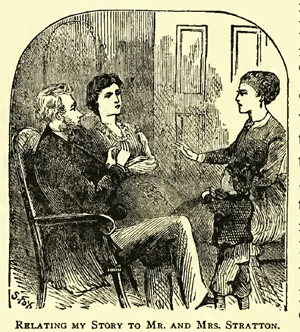
Relating my Story to Mr. and Mrs. Stratton.
An urgent invitation to visit them came by way of speedy reply; and in response, I spent an entire afternoon at their house. They received me so cordially that my heart went out in love toward them at once. I talked to them unreservedly, and opened my soul to them. I told them of my childhood, my religious training, my unhappy domestic experience, and all the occurrences of my marriage to Brigham Young. They listened with earnest sympathy, and when I finished my story were overflowing with words of pity and consolation. I shall never forget them in my life. They were the sweetest words which had ever been spoken to me, for they helped me to see the way out of bondage. It was the first glimpse I had ever had of domestic life outside of polygamy, and the deference which the husband showed to the wife, the confidence she displayed in him, and her perfect ease in his presence, were very strange to me. The equality on which they seemed to stand puzzled me. I could not understand this religion which regarded woman as an independent soul, with a free will, and capability of judgment. The inferiority of women is so strongly insisted upon by the Mormon doctrine that I supposed it must be the same everywhere, and the first view which I got of this sweet household was a revelation to me.
I carried home a braver and stronger heart than had beat in my bosom for many a long day. I went about my daily duties as quietly as though there were not a resolution forming in my mind which was speedily to overturn my whole life, and bring me into a new and strange existence.
Meanwhile my destiny was working itself out in a way I knew not, turning my feet into unexplored paths; and I did not yet see where I was straying, nor what the near future was holding in store for me.

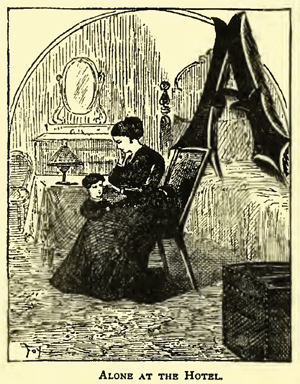
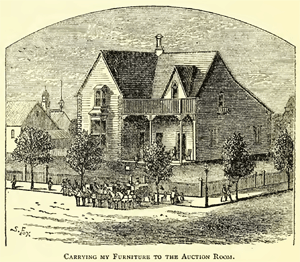
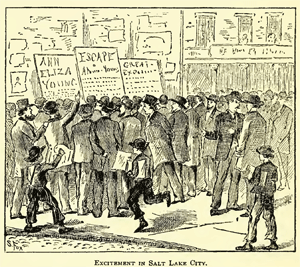
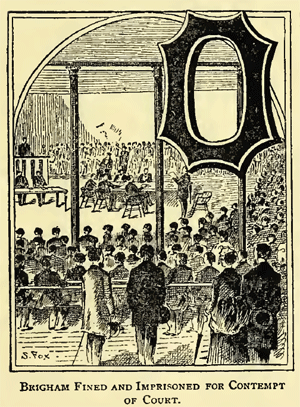
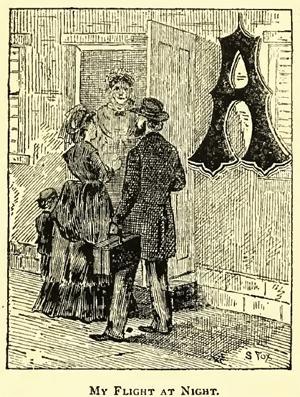
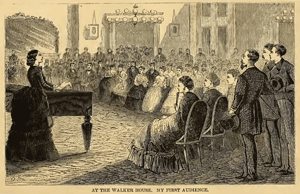
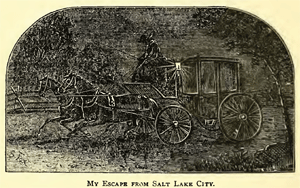
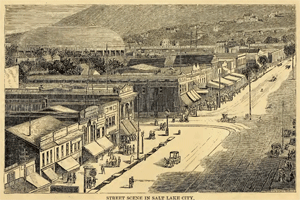
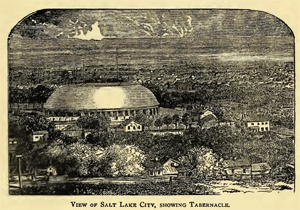
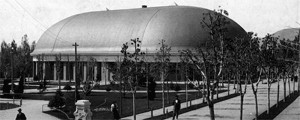
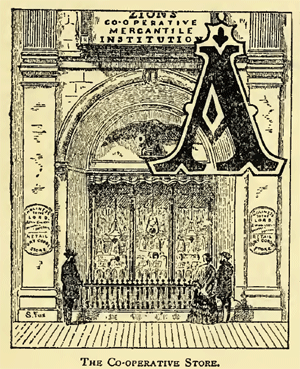
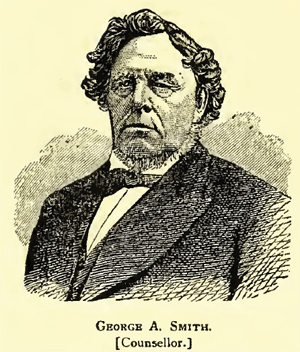
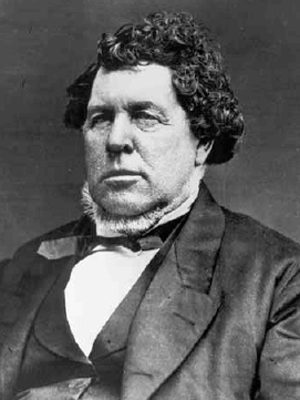
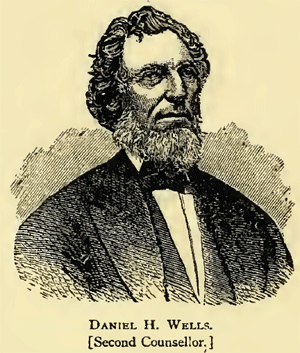
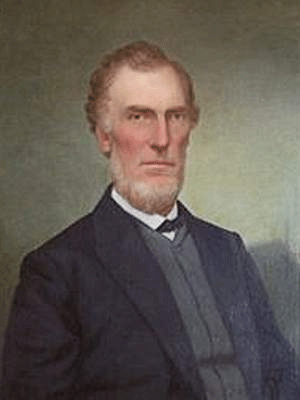
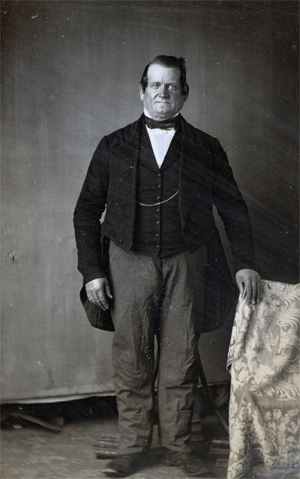
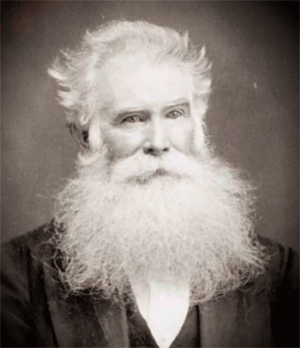
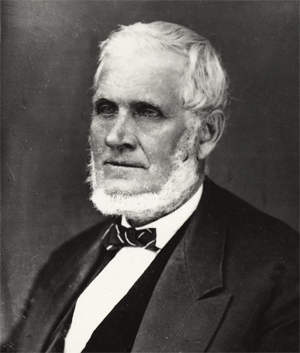
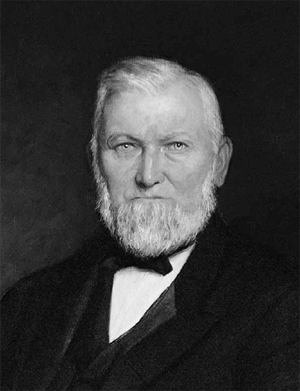
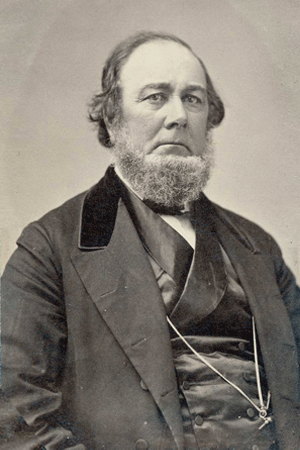
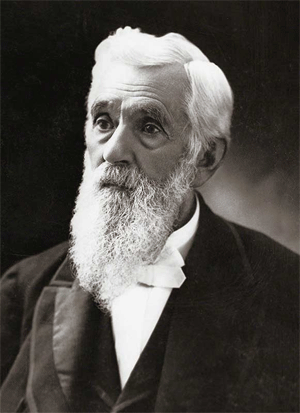
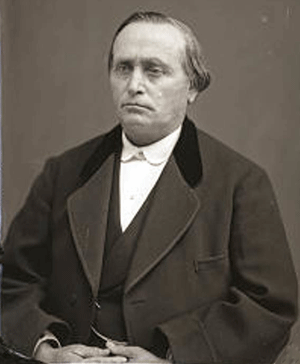
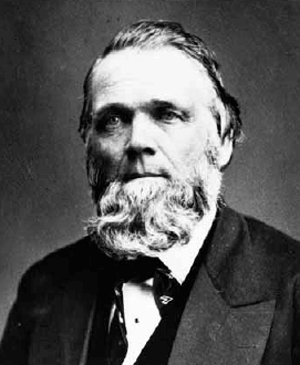
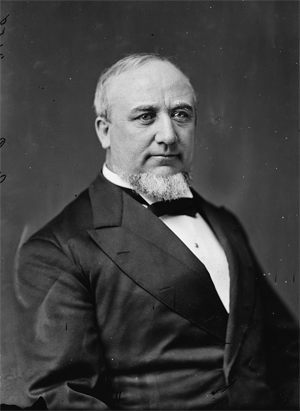
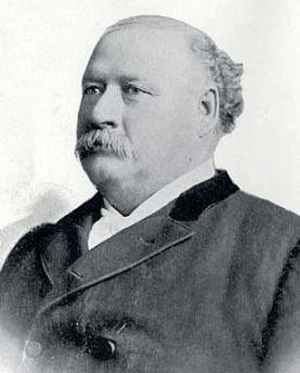
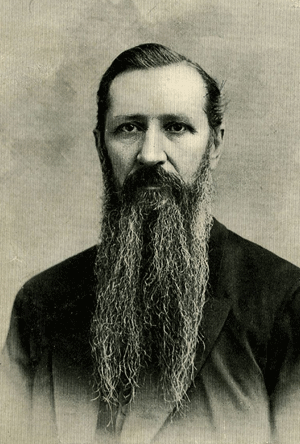
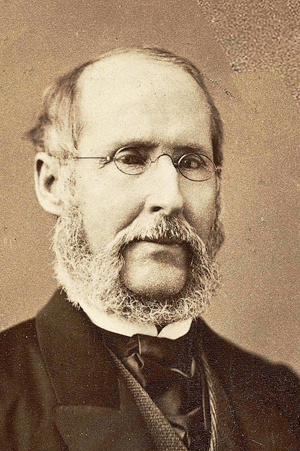
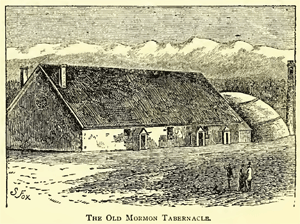
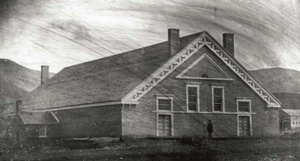
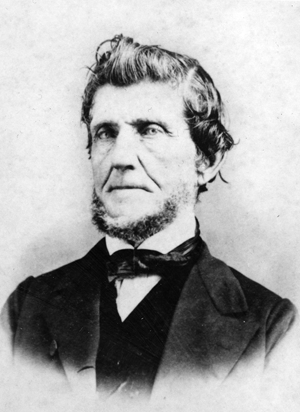
 -- connects in Hebrew with instruction, which offered to Masonic minds of the past a path of easy transition to the notion of initiation. To him therefore is referred the first institution of Mysteries, or alternatively their specific development and direction. Such a notion is of course implied by the attribution of the Secret Tradition to which I have referred. It is current in two forms, being that according to which he was the recipient of heavenly wisdom sent down from heaven itself, in the shape of arch -- natural books, and that which represents him as taught by earlier patriarchs, who were taught themselves by Adam, that mournful custodian of Divine Science reflected from the lost estate of Paradise. The approximate source of both is the SEPHER HA ZOHAR, behind which lies a mass of oriental tradition, a part only of which has been gathered into the Talmuds.
-- connects in Hebrew with instruction, which offered to Masonic minds of the past a path of easy transition to the notion of initiation. To him therefore is referred the first institution of Mysteries, or alternatively their specific development and direction. Such a notion is of course implied by the attribution of the Secret Tradition to which I have referred. It is current in two forms, being that according to which he was the recipient of heavenly wisdom sent down from heaven itself, in the shape of arch -- natural books, and that which represents him as taught by earlier patriarchs, who were taught themselves by Adam, that mournful custodian of Divine Science reflected from the lost estate of Paradise. The approximate source of both is the SEPHER HA ZOHAR, behind which lies a mass of oriental tradition, a part only of which has been gathered into the Talmuds.